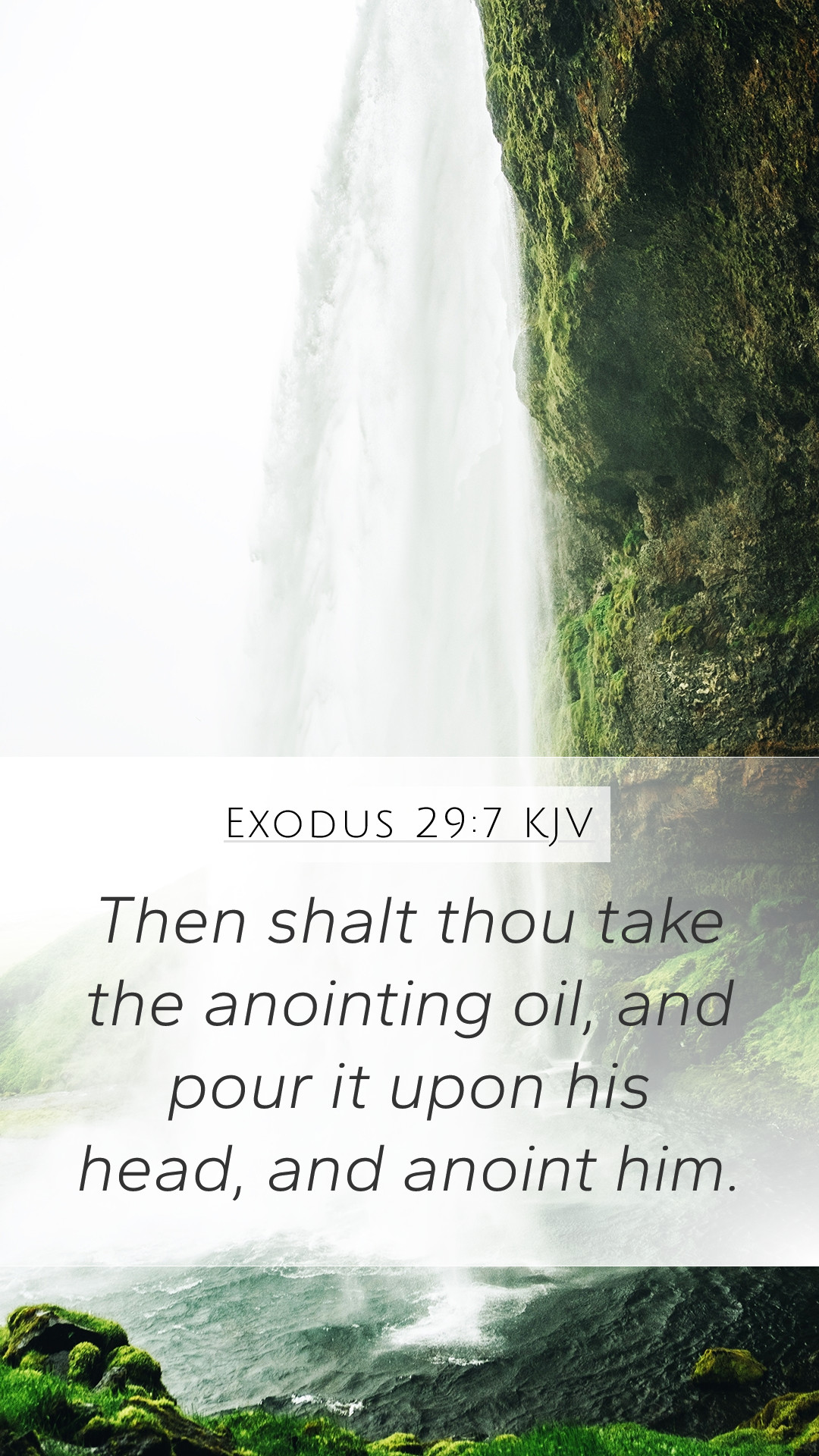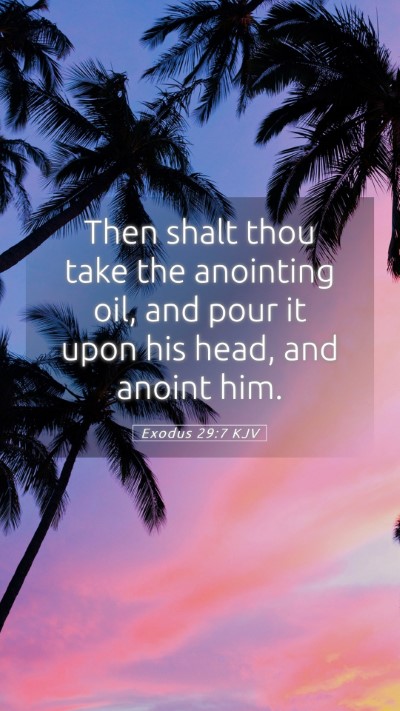Exodus 29:7 - Understanding the Significance of the Anointing
Exodus 29:7 states, "Then you shall take the anointing oil, and pour it on his head, and anoint him." This verse is critical in understanding the process of consecrating Aaron and his sons for their priestly duties. Below, we delve into the meaning of this verse, providing insights drawn from several public domain commentaries, including those by Matthew Henry, Albert Barnes, and Adam Clarke.
Bible Verse Explanation
The act of anointing with oil in ancient Israel was a significant ceremonial act, indicating selection and empowerment by God. The anointing oil in this context symbolizes the Holy Spirit's presence and empowerment for the sacred duties that the priests were to undertake.
Key Insights from Commentaries
-
Matthew Henry:
Henry emphasizes that the anointing oil signifies the grace of God which enables the priests to perform their duties. This act does not merely serve as a ritual but depicts the divine empowerment necessary for carrying out sacred functions within the community. Through this, it illustrates that ministry is not conducted through mere human effort but through divine enablement.
-
Albert Barnes:
Barnes points out the importance of the anointing oil in the Old Testament, showing it as a divine seal of God's choice. He notes that anointing distinguishes the priesthood and emphasizes their role as mediators between God and the people. It also sets the groundwork for understanding the anointing of Jesus Christ as the ultimate High Priest.
-
Adam Clarke:
Clarke discusses the nature of the oil used for anointing, suggesting its composition was special and symbolic. He notes the significance of the oil representing the Holy Spirit which is conferred upon the appointed leaders within the faith community. His detailed analysis underscores that this was not just a formal assignment but an indelible mark of God’s blessing.
Symbolism in Anointing
Anointing signifies several profound truths:
-
Selection: To be anointed is to be chosen by God for a specific purpose, marking the individual’s sacred role.
-
Empowerment: The anointing oil represents the Holy Spirit’s empowerment, necessary for effective service and ministry.
-
Separation: This act separates the anointed from the ordinary, positioning them as part of God's holy service.
Cross References
Several other scripture passages contribute to understanding the significance of Exodus 29:7:
- Leviticus 8:12: The anointing of Aaron’s head.
- Psalm 133:2: The blessing of unity depicted through anointing.
- Acts 10:38: God's anointing of Jesus with the Holy Spirit.
Application to Daily Life
The principles derived from Exodus 29:7 provide insights applicable to modern believers:
- Recognize God’s calling on your life and the importance of being set apart for His purpose.
- Seek the empowerment of the Holy Spirit in your daily responsibilities and spiritual endeavors.
- Understand the significance of being part of a community that serves God and supports one another in the journey of faith.
Conclusion
The anointing in Exodus 29:7 embodies profound theological truths about God's election, empowerment, and the sacred role of the priesthood. This verse invites believers to appreciate the gravity of divine calling and the continuous need for the Holy Spirit in their lives. Through careful examination of this scripture and its surrounding context, one can glean vital Bible study insights that enrich their understanding of Scripture.
Further Bible Study Tools
For deeper exploration of Bible verse meanings and bible study guides, consider using the following:
- Bible Study Resources: Access tools like concordances, dictionaries, and commentaries.
- Online Bible Study: Participate in discussions with Bible study groups that offer diverse insights.
- Bible Study Courses: Engage in structured learning that guides through the narratives and teachings within Scripture.


